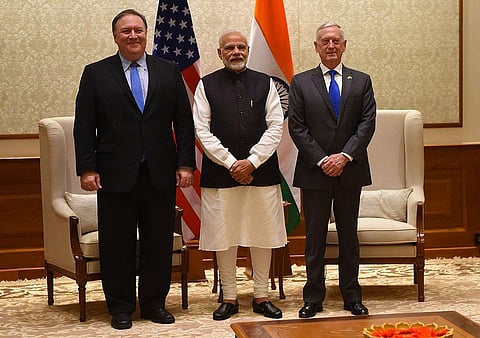US Secretary of State Mike Pompeo came in advance for the final round of Prime Minister Narendra Modi's face-to-face meeting with American President Donald Trump. Trump sent him to fix the schedule of the two top leaders' meeting. It was just before June 28 that a bilateral meeting would be held in the G-20 summit in Japan. But with Foreign Minister S. Jaishankar, Pompeo also held an advance meeting basically for themselves. Trump praised Modi with a tweet as soon as his second innings started, but his main goal was to ensure that India withdrew tax on US items – India has taxed medicine, cars, toys, and this tax had to be reduced.


